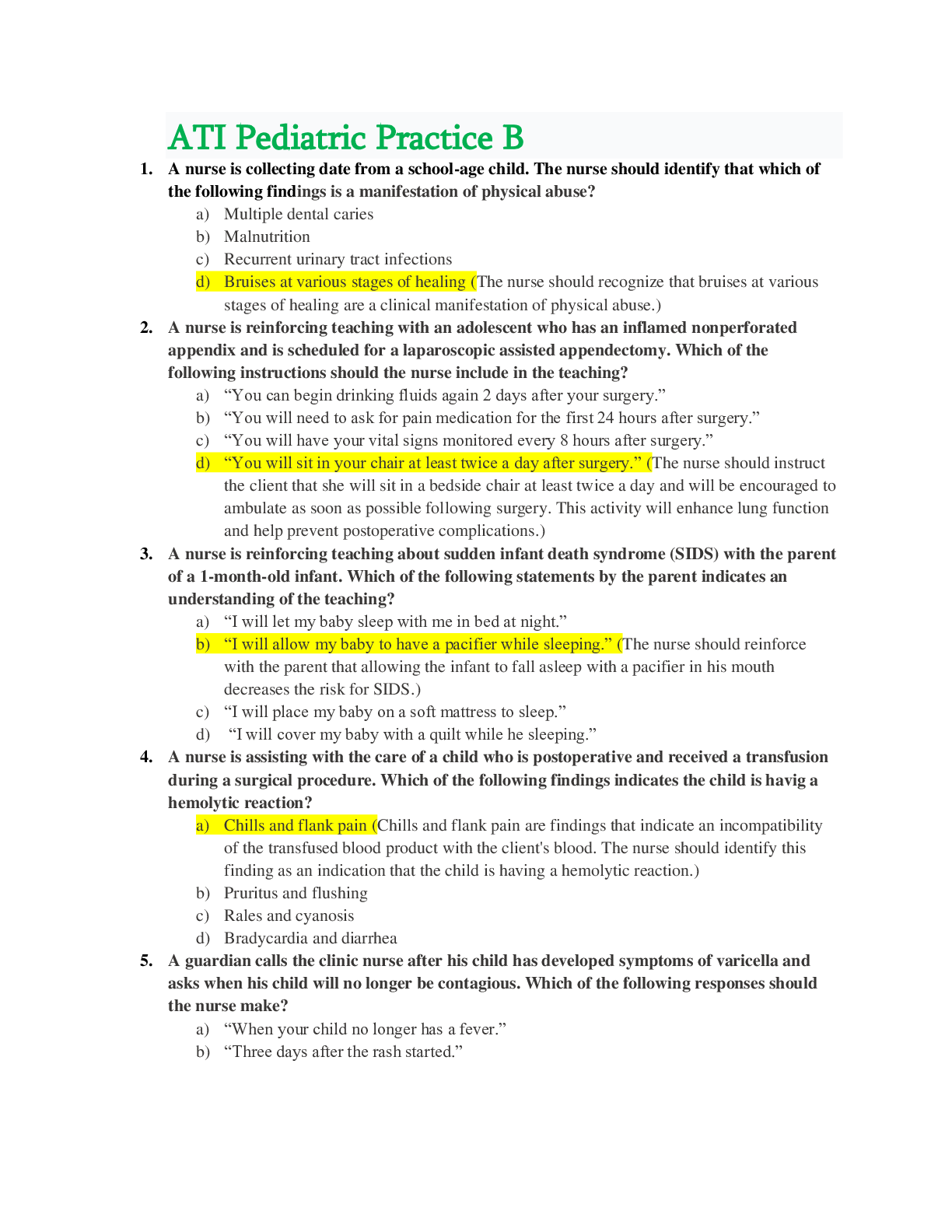Health Care > EXAM > ATI MENTAL HEALTH PROCTORED EXAM (VERSION 4) VERIFIED ANSWERS WITH RATIONALE (All)
ATI MENTAL HEALTH PROCTORED EXAM (VERSION 4) VERIFIED ANSWERS WITH RATIONALE
Document Content and Description Below
ATI MENTAL HEALTH PROCTORED EXAM (VERSION 4) VERIFIED ANSWERS WITH RATIONALE A charge nurse is conducting a class on therapeutic communication to a group of newly licensed nurses. Which of the foll... owing responses by the newly licensed nurse requires additional teaching regarding nonverbal communication? A. Personal space B. Posture C. Eye contact D. Intonation Intonation is the tone of one's voice and can communicate a variety of feelings. A nurse is communicating with a client on the acute mental health facility. The client states, "I can't sleep. I stay up all night." The nurse responds, "You are having difficulty sleeping?" Which of the following therapeutic communication techniques is the nurse demonstrating? A. Offering general leads B. Summarizing C. Focusing D. Restating Restating allows the nurse to repeat the main idea expressed. A nurse is communicating with a newly admitted client. Which of the following is a barrier to therapeutic communication? A. Offering advice B. Reflecting meaning C. Listening attentively D. Giving information Offering advice to a client is a barrier to therapeutic communication and should be avoided. Advice tends to interfere with the client's ability to make personal decisions and choices. A nurse is conducting therapy with a several clients and their families. Effective communication with clients and families are based on? A. discussing in-depth topics with which the client feels comfortable. B. using silence to avoid unpleasant or difficult topics. C. attending to verbal and nonverbal behaviours. D. requiring the client and family to ask for feedback. When a family asks a nurse for reassurance about a client's condition, which of the following is an appropriate response? A. "I think your son is getting better. What have you noticed?" B. "I'm sure everything will be okay. It just takes time to heal." C. "I'm not sure what's wrong. Have you asked the doctor about your concerns?" D. "I understand you're concerned. Let's discuss what concerns you specifically." A therapeutic response reflects upon, and accepts, the family's feelings, and it allows the members to clarify what they are feeling. A nurse is caring for a client who smokes and has lung cancer. The client reports, "I'm coughing because I have that cold that everyone has been getting." Which of the following defense mechanisms is the client using? A. Reaction formation B. Denial C. Displacement D. Sublimation pretending the truth is not reality to manage the anxiety of acknowledging what is real. A nurse is obtaining informed consent for a client who has just learned she must have a breast biopsy. The client is perspiring and pale, has a respiratory rate 30/min, and says, "I don't quite understand what you're trying to tell me." The nurse should assess the client's anxiety as which of the following? A. Mild B. Moderate C. Severe D. Panic Moderate anxiety decreases problem-solving and may hamper one's ability to understand information. Vital signs may increase somewhat, and the person is visibly anxious. A nurse is caring for a client who is experiencing moderate anxiety. Which of the following is an appropriate nursing intervention when trying to give necessary information to the client? A. Reassure the client that everything will be okay. B. Use a low-pitched voice and speak slowly. C. Ignore the client's anxiety so that she will not be embarrassed. D. Demonstrate a calm manner while using simple and clear language. giving information simply and calmly will help the client grasp essential facts. A nurse is talking with a client who is at risk for suicide following the death of his spouse. Which of the following statements by the nurse is appropriate? A. "I feel very sorry for the loneliness you must be experiencing." B. "Suicide is not the appropriate way to cope with loss." C. "Losing someone close to you must be very upsetting." D. "I know how difficult it is to lose a loved one." This statement is an empathetic response that attempts to understand the client's feelings. A nurse is in the working phase of a therapeutic relationship with a client who has methamphetamine use disorder. Which of the following indicates transference behaviour? A. The client asks the nurse whether she will go out to dinner with him. B. The client accuses the nurse of telling him what to do just like his ex-girlfriend. C. The client reminds the nurse of a friend who died from a substance overdose. D. The client becomes angry and threatens harm to himself. When a client views the nurse as having characteristics of another person who has been significant to his personal life, such as his ex-girlfriend, this indicates transference. [Show More]
Last updated: 10 months ago
Preview 1 out of 41 pages
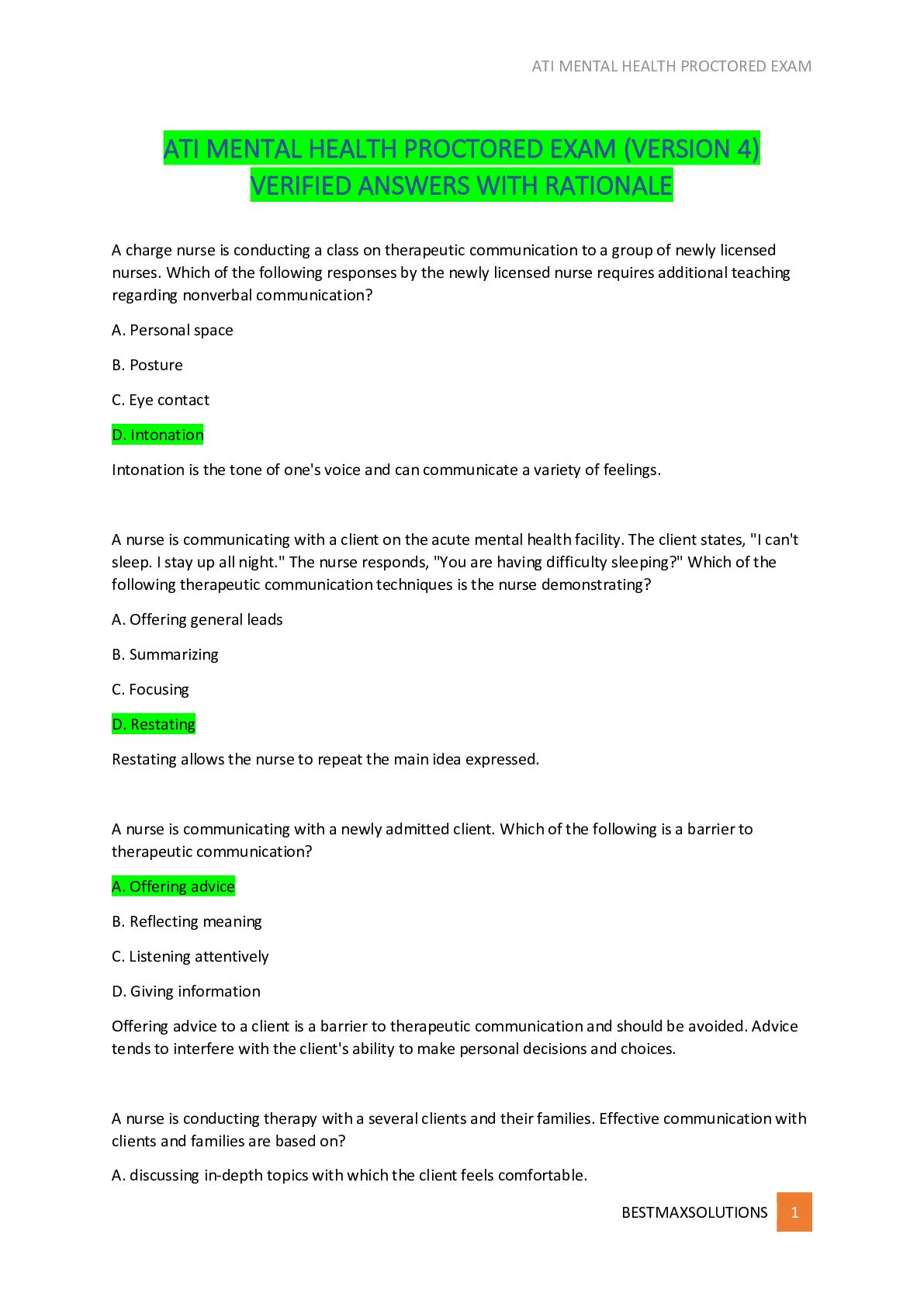
Buy this document to get the full access instantly
Instant Download Access after purchase
Add to cartInstant download
We Accept:

Reviews( 0 )
$8.00
Document information
Connected school, study & course
About the document
Uploaded On
Aug 03, 2023
Number of pages
41
Written in
Additional information
This document has been written for:
Uploaded
Aug 03, 2023
Downloads
0
Views
18

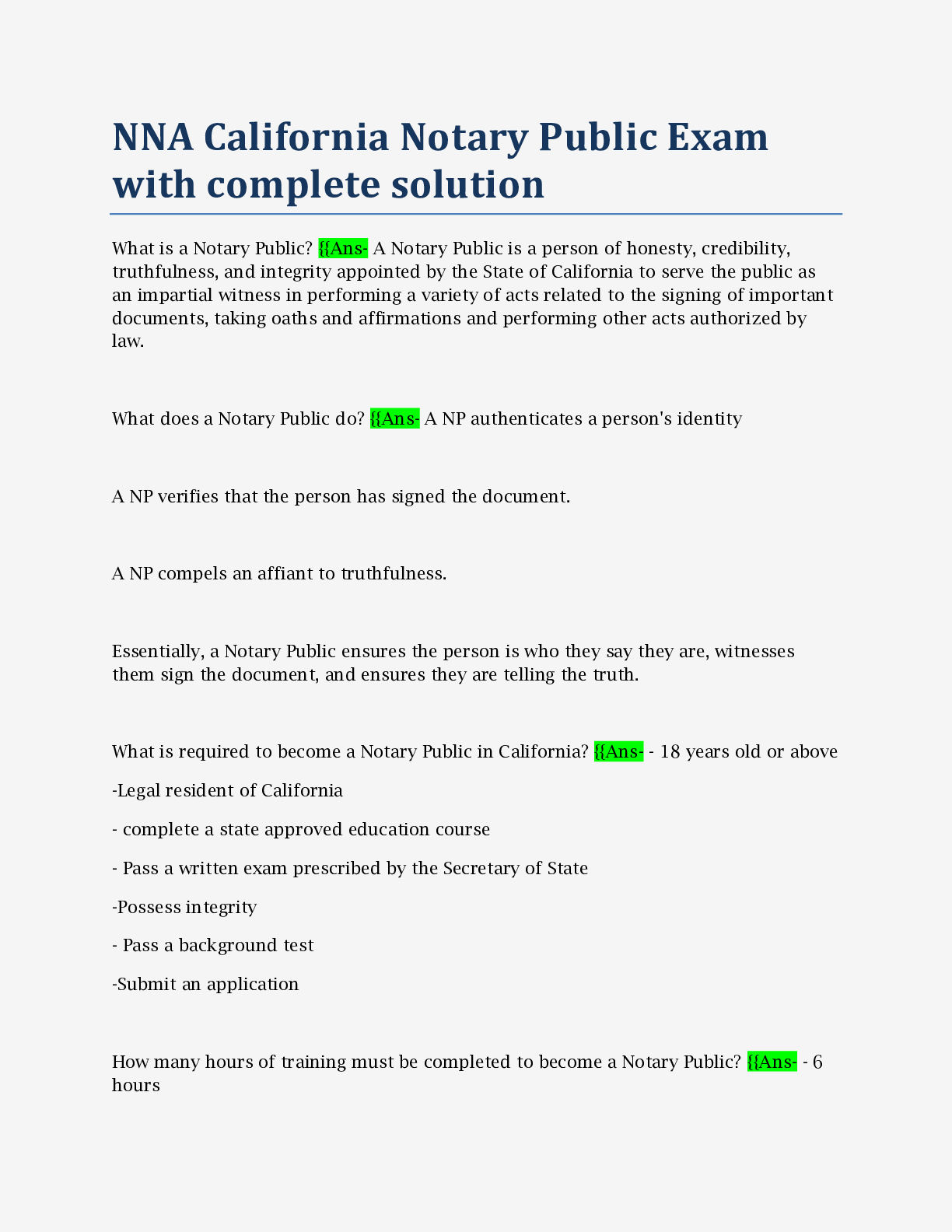
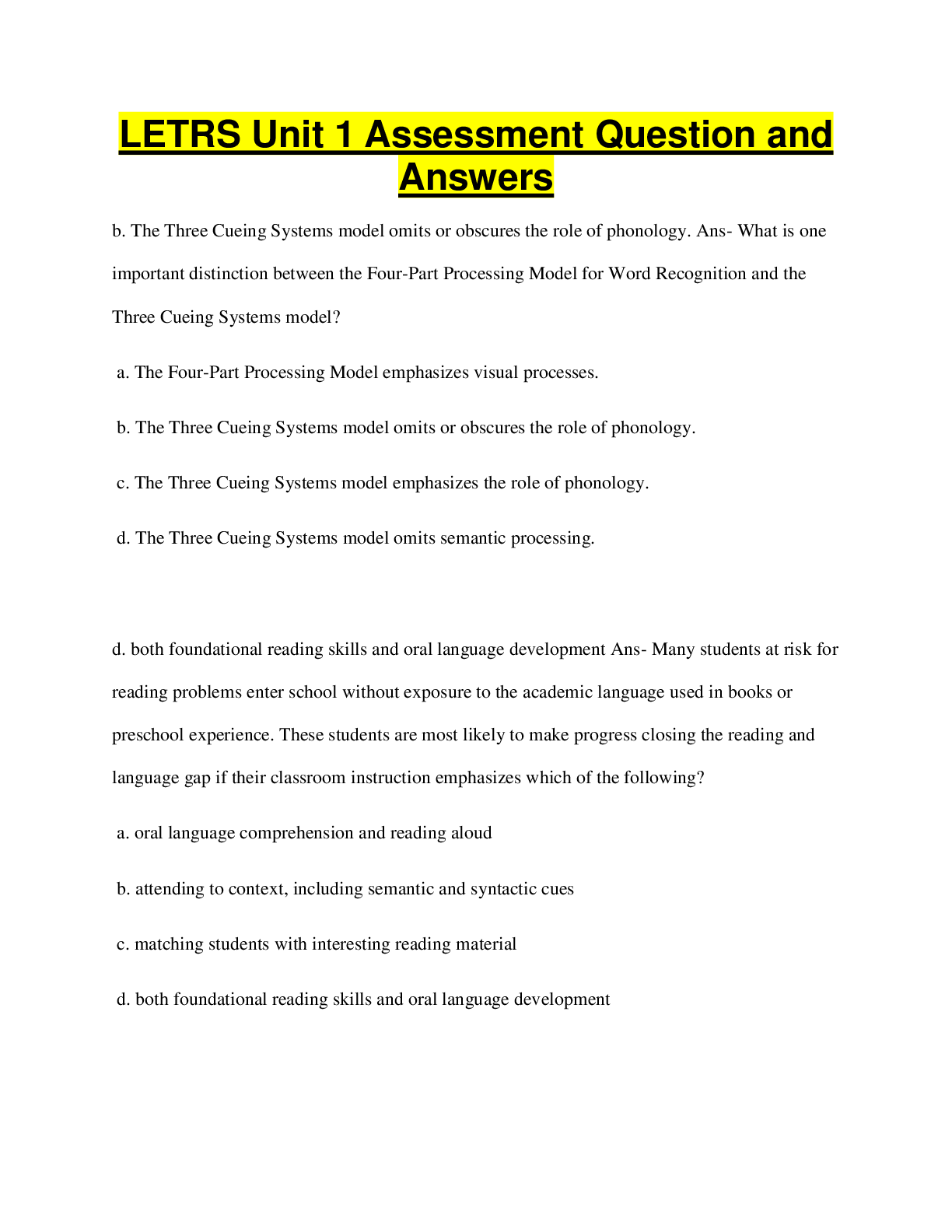
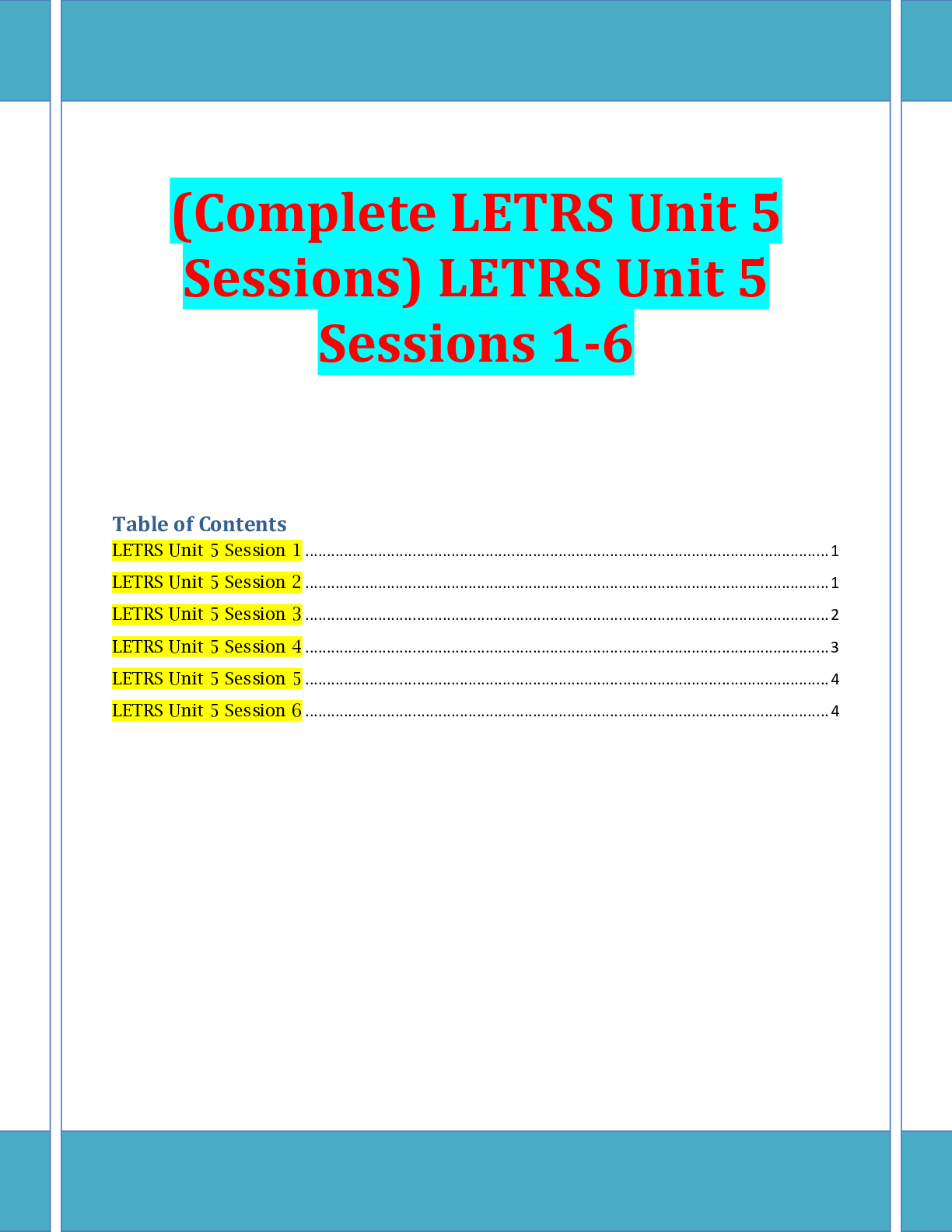
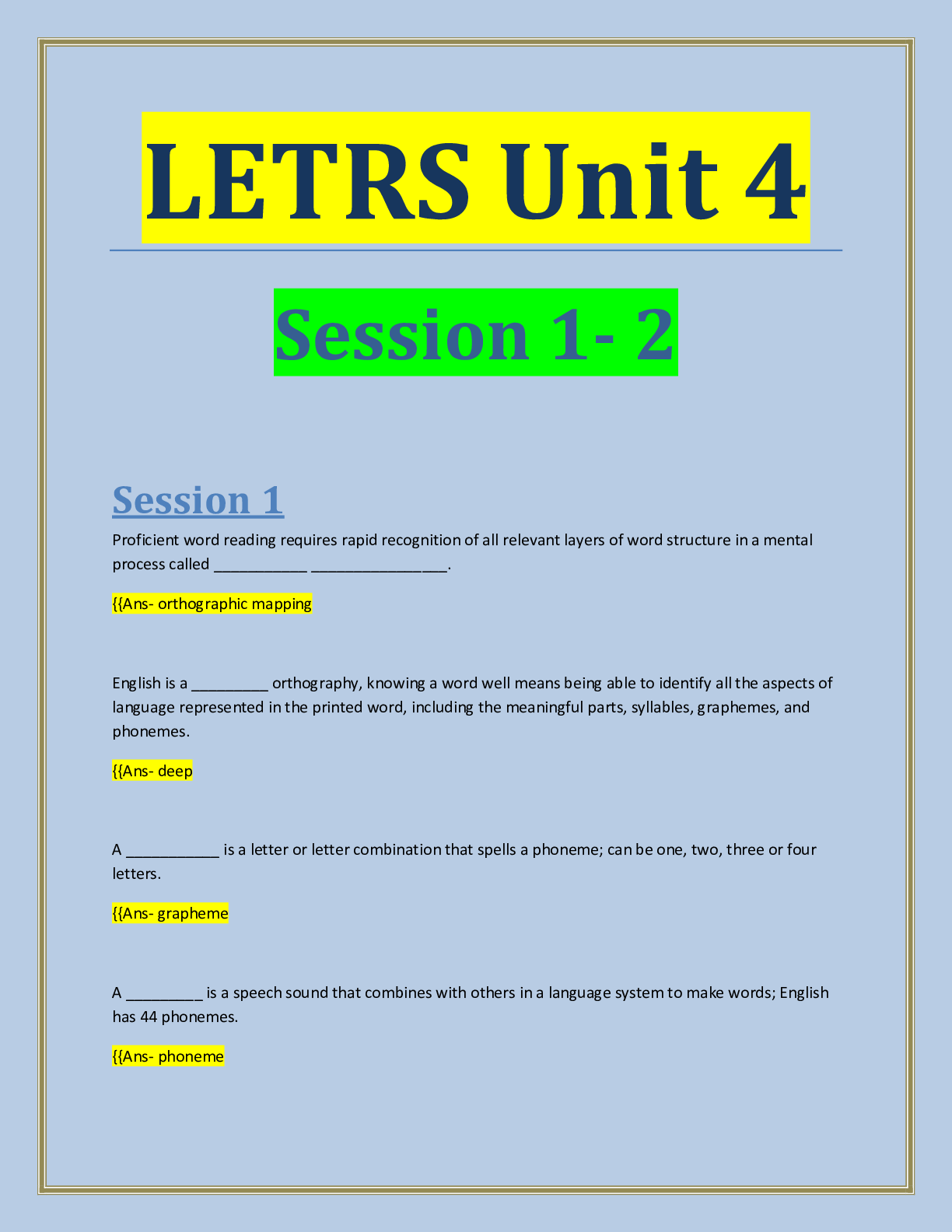
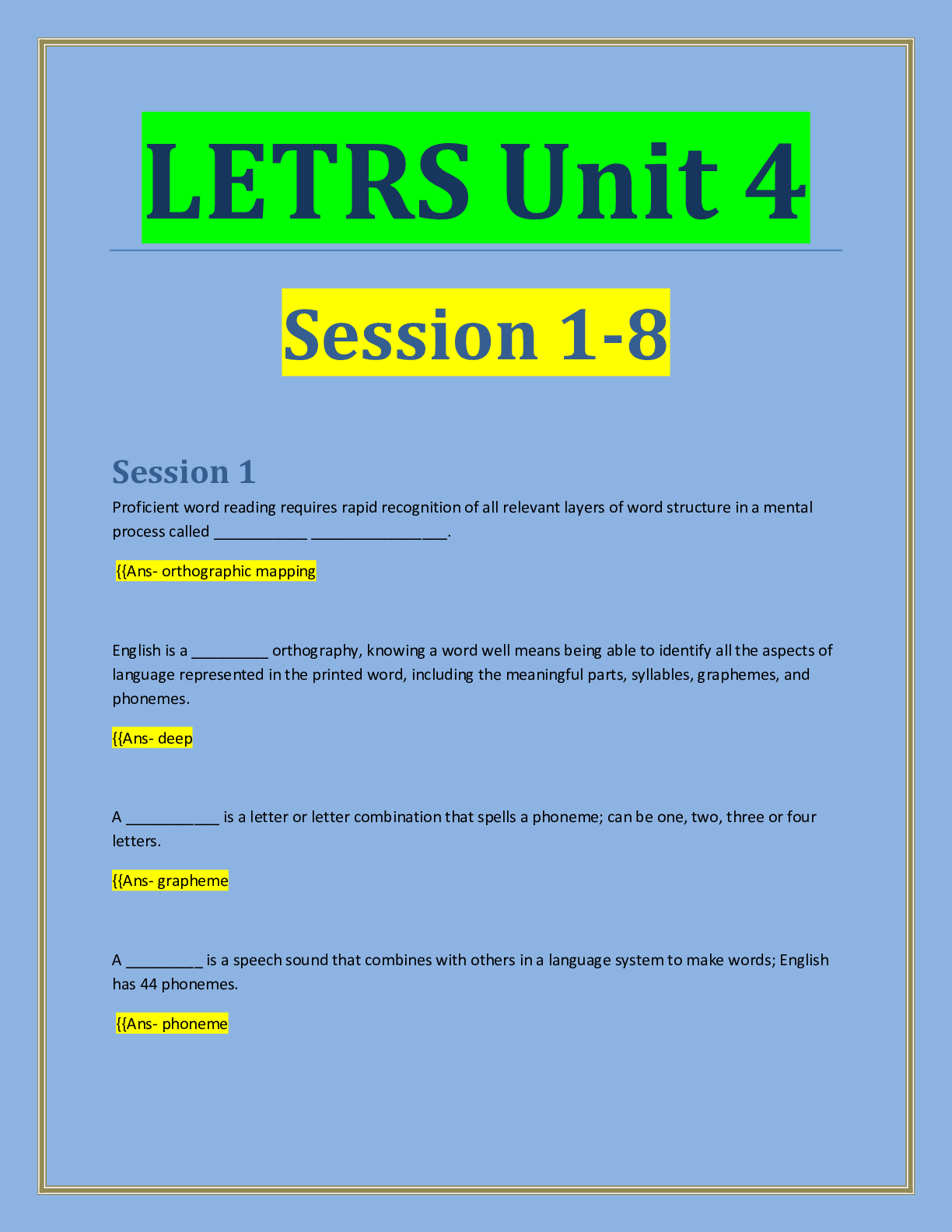
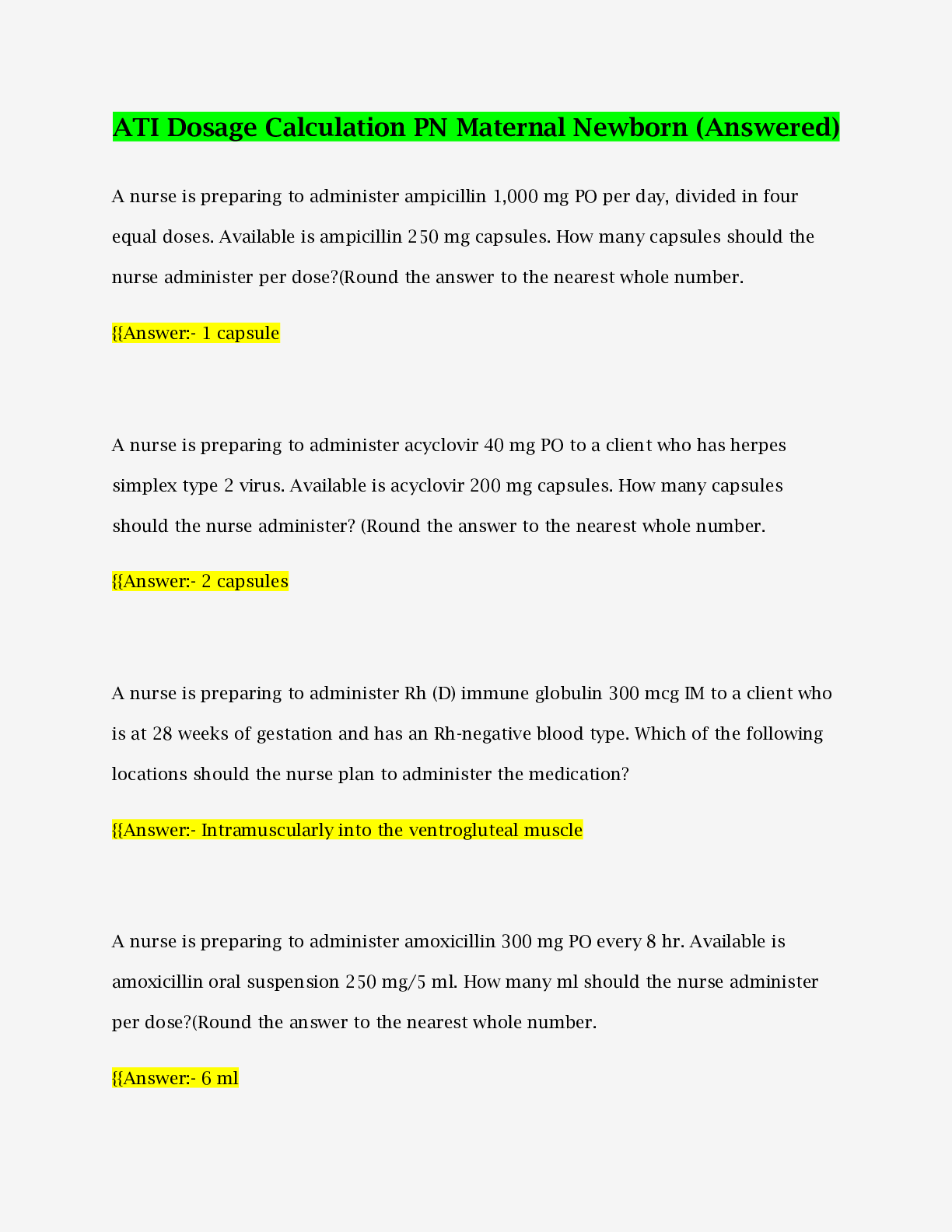
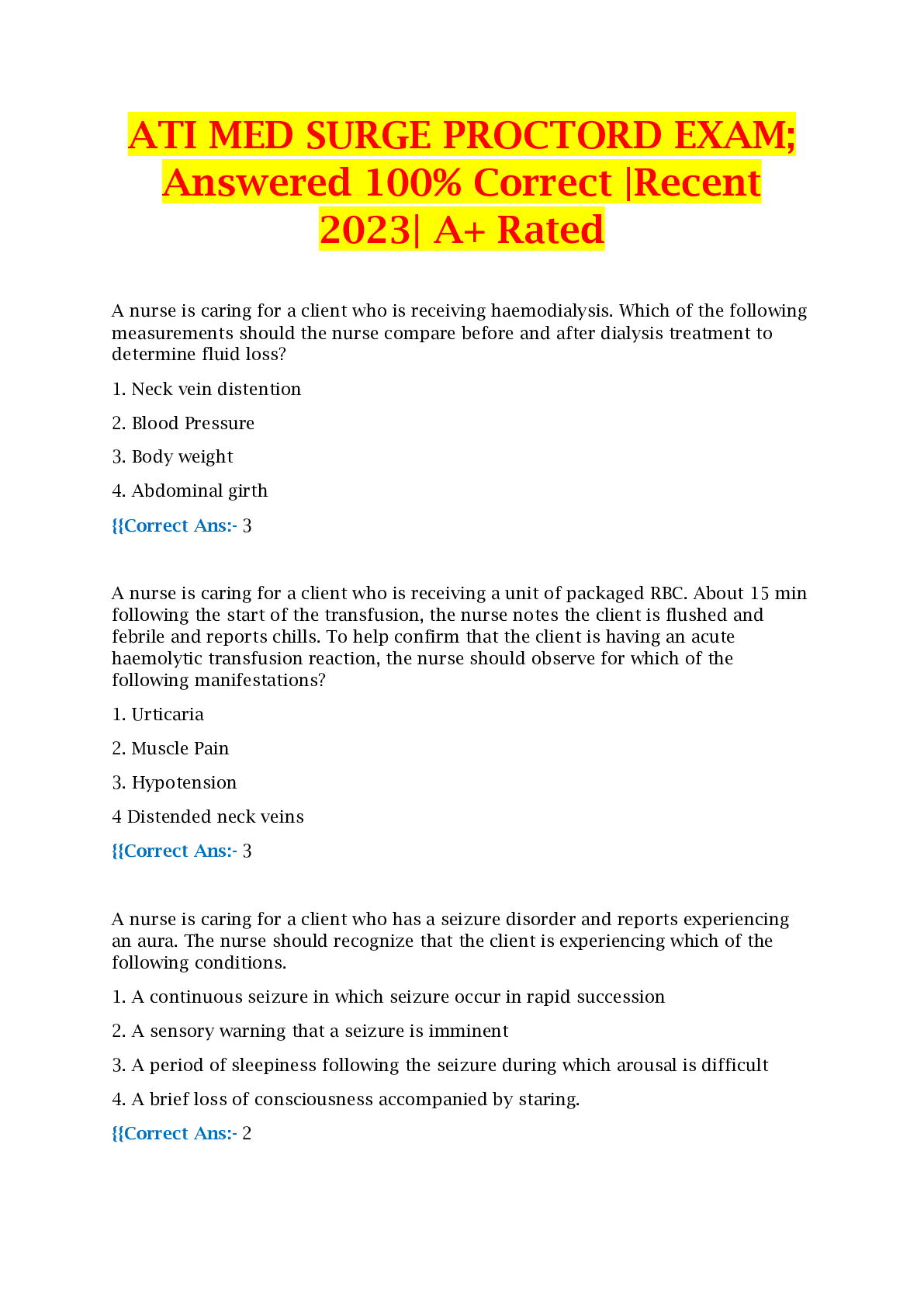
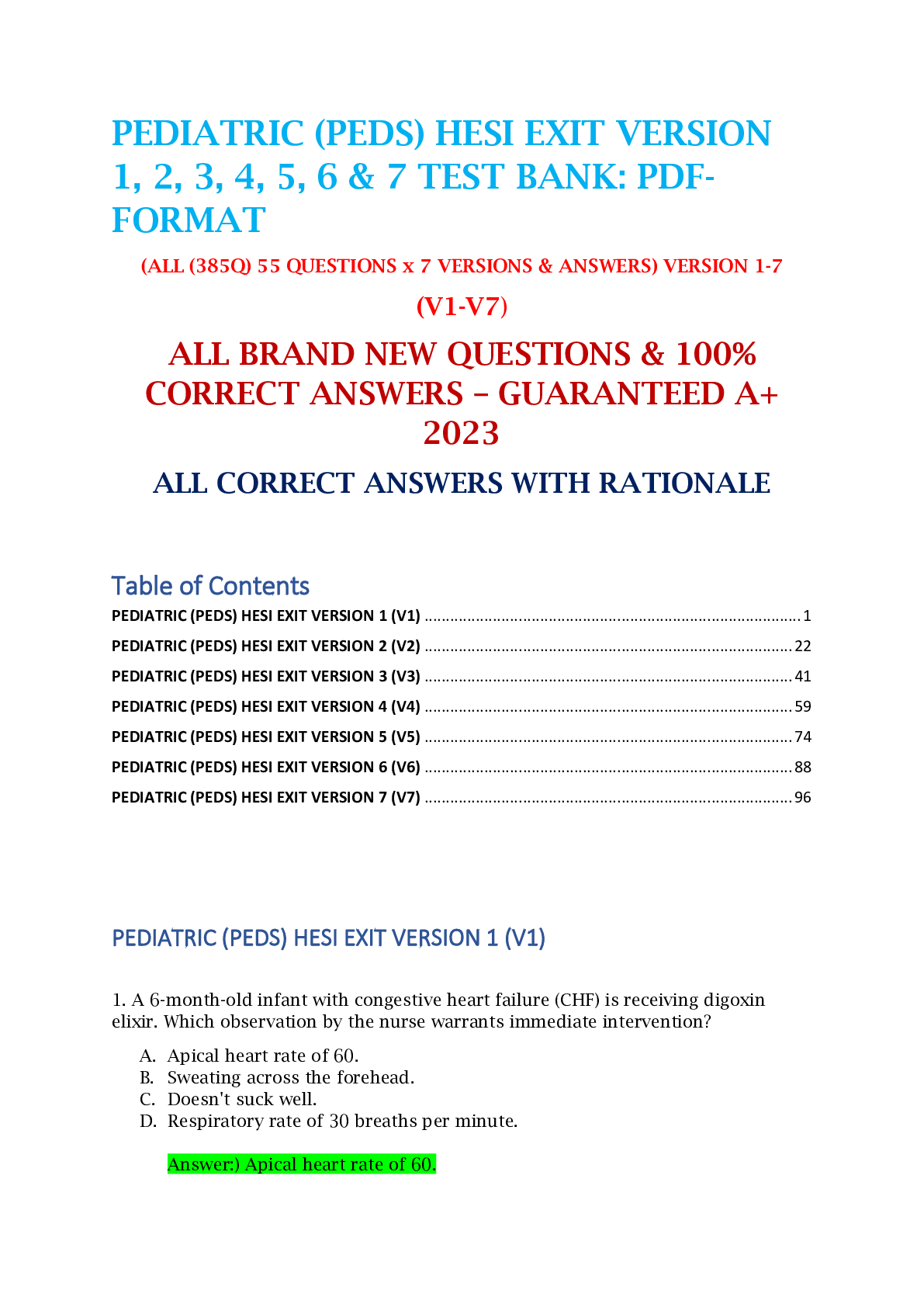
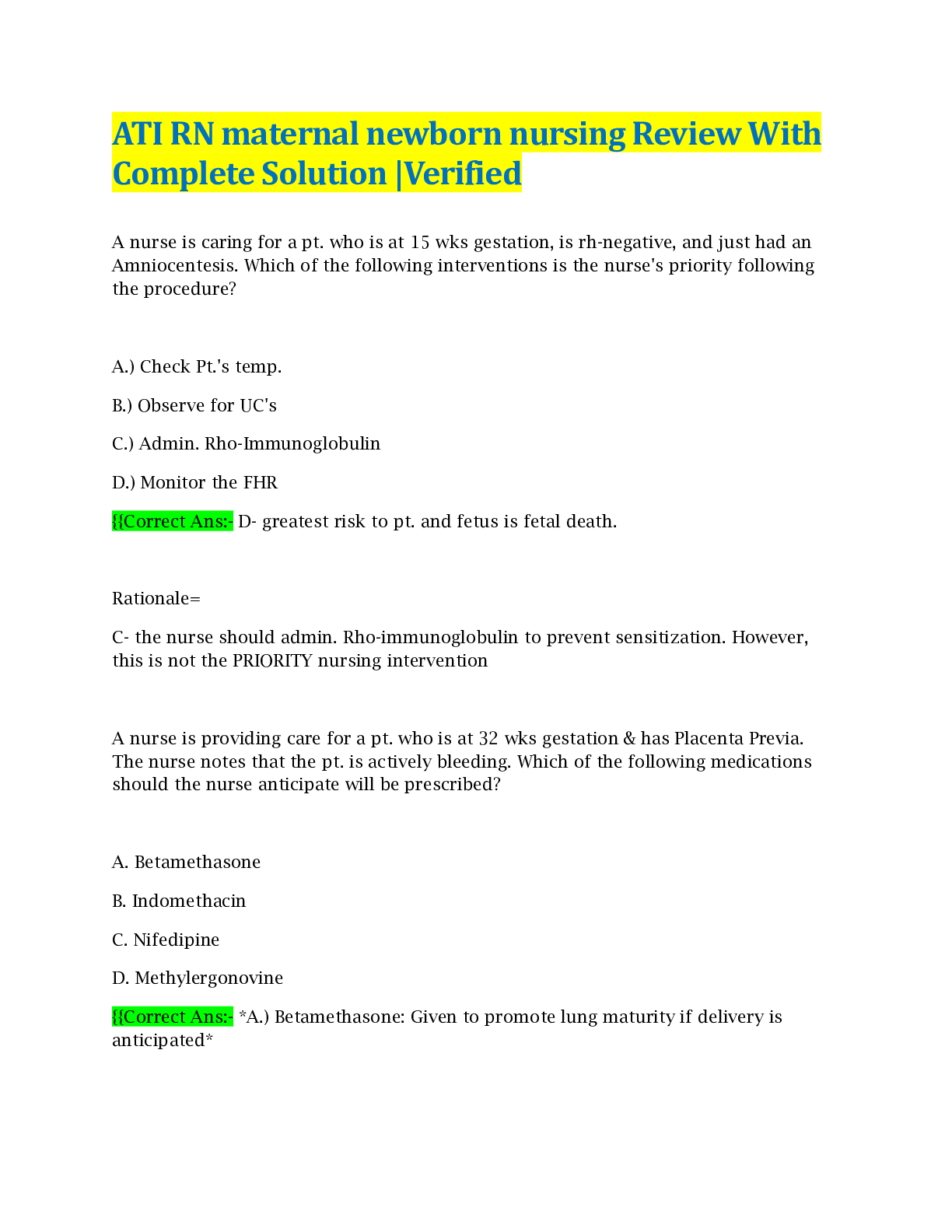
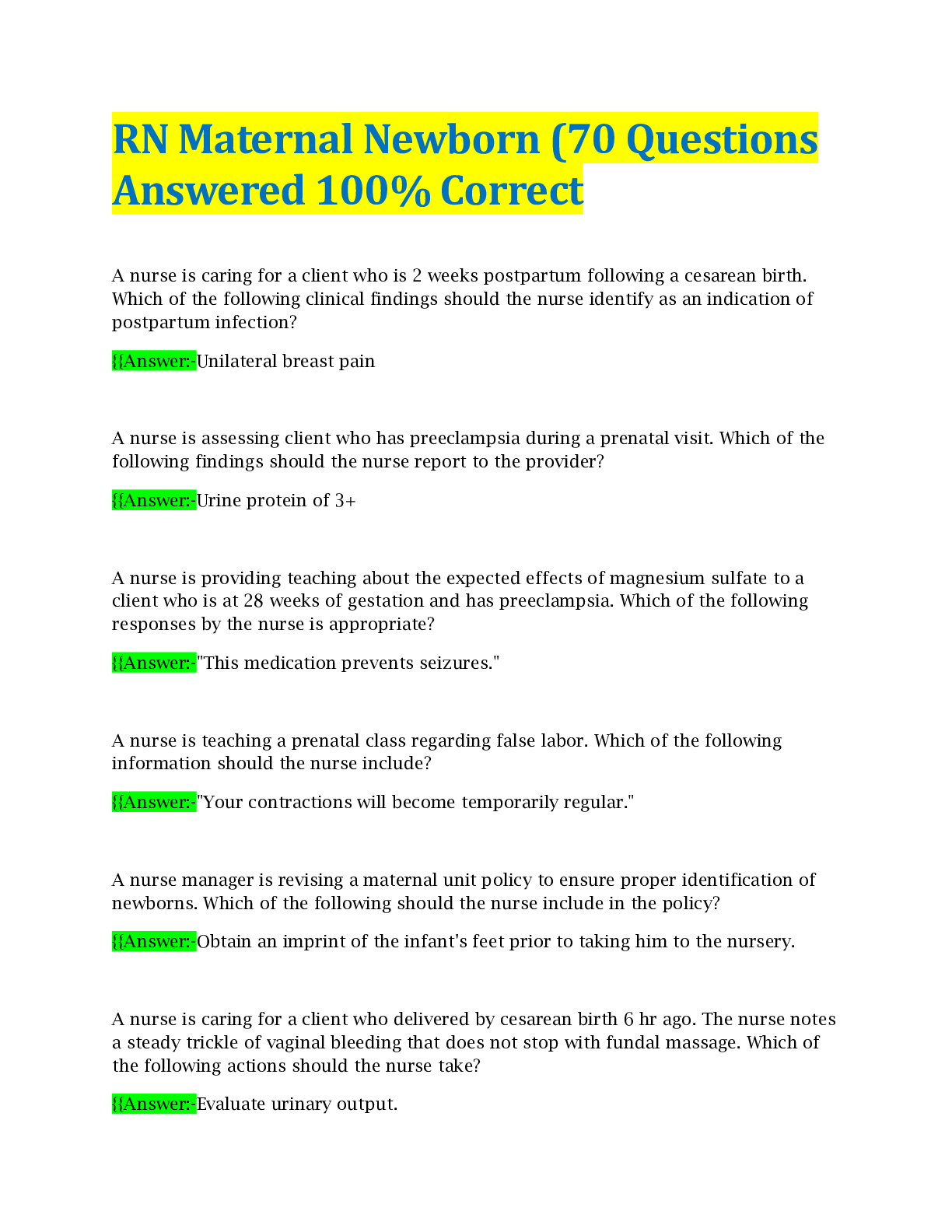
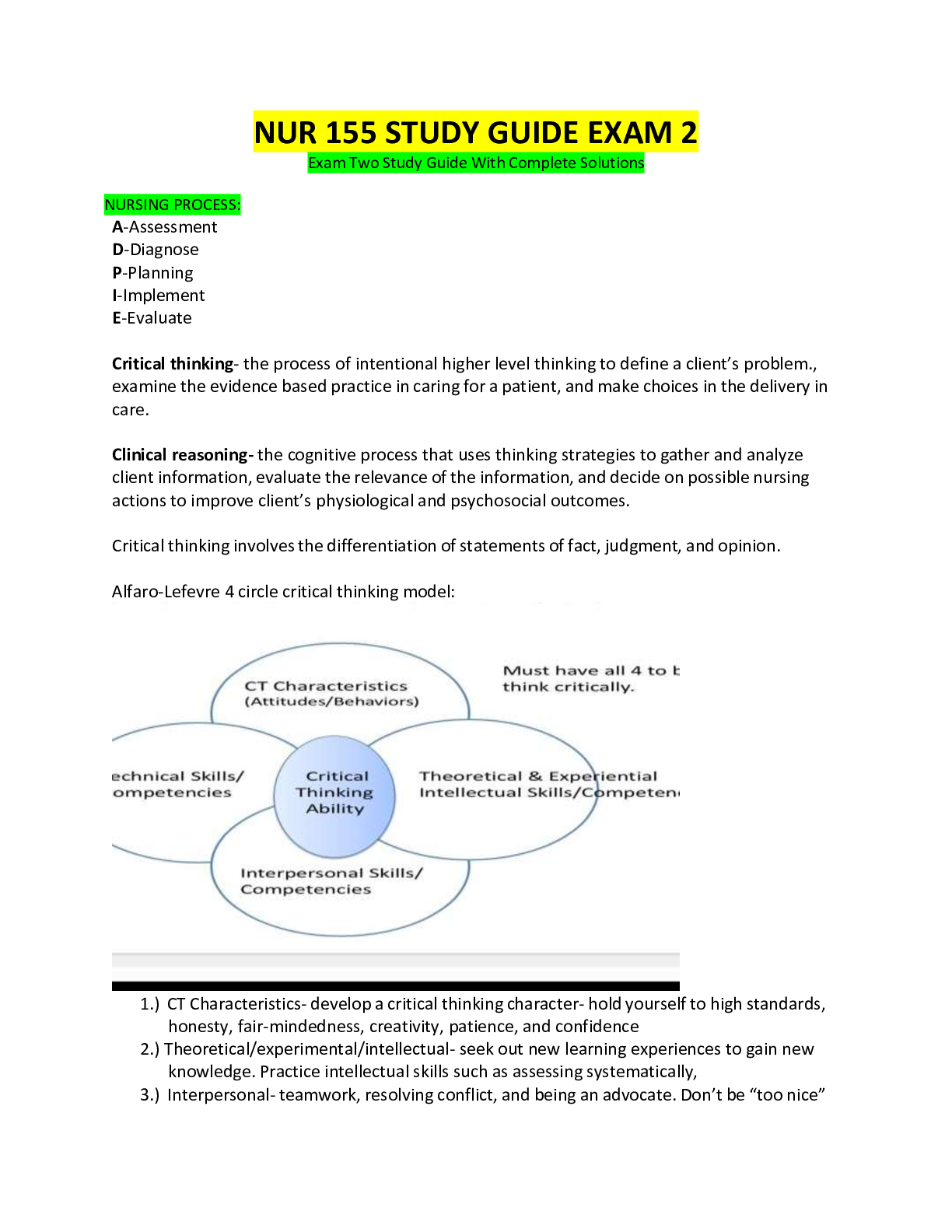
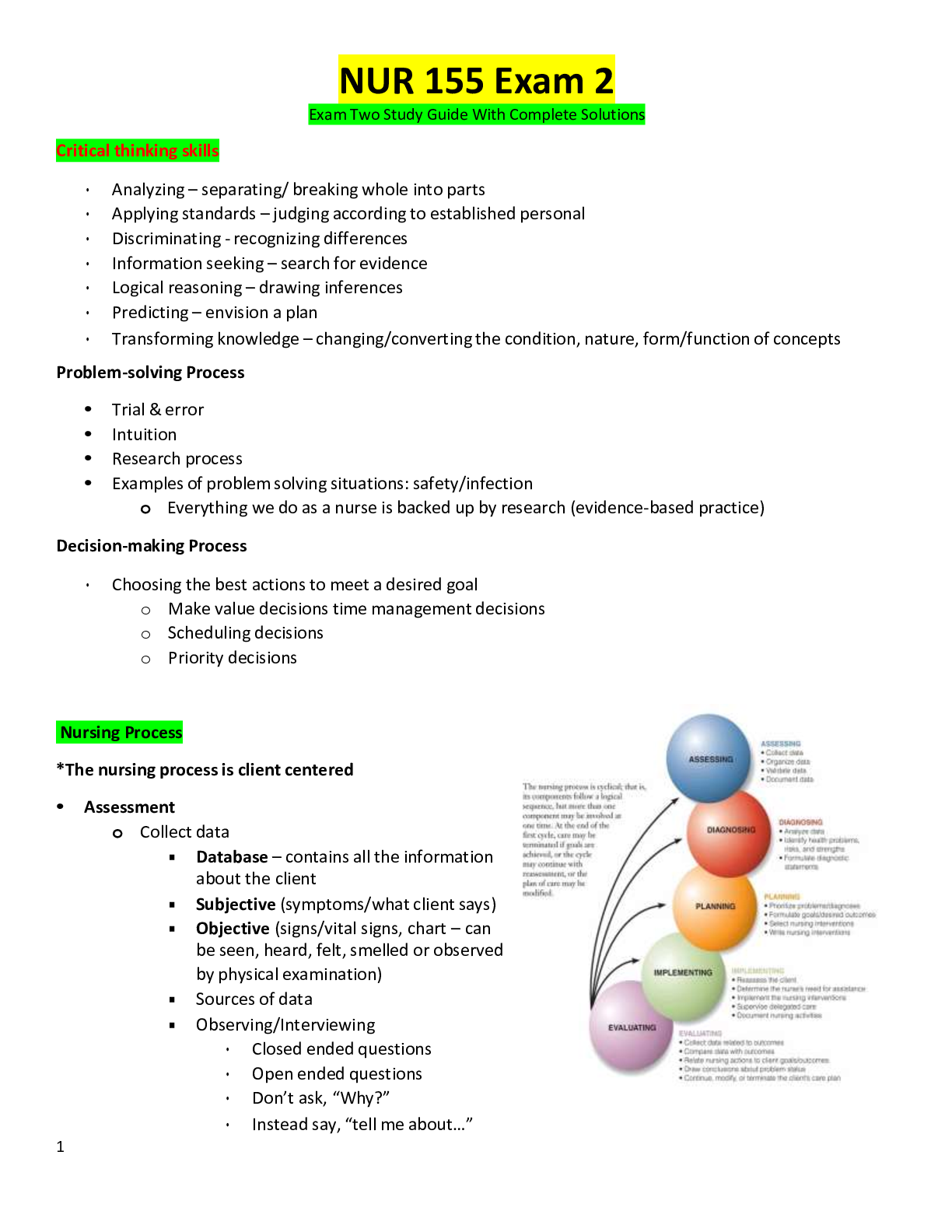
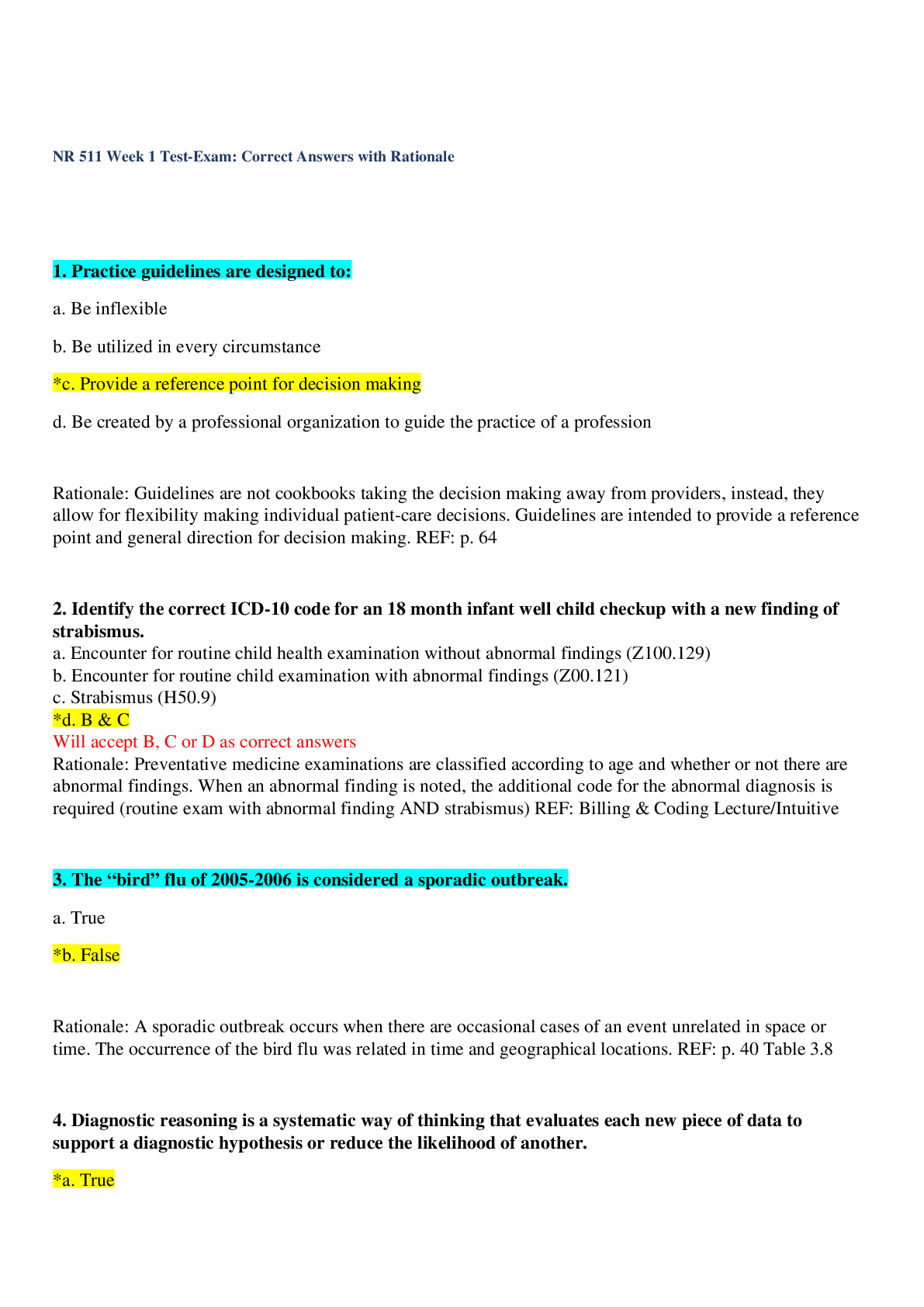

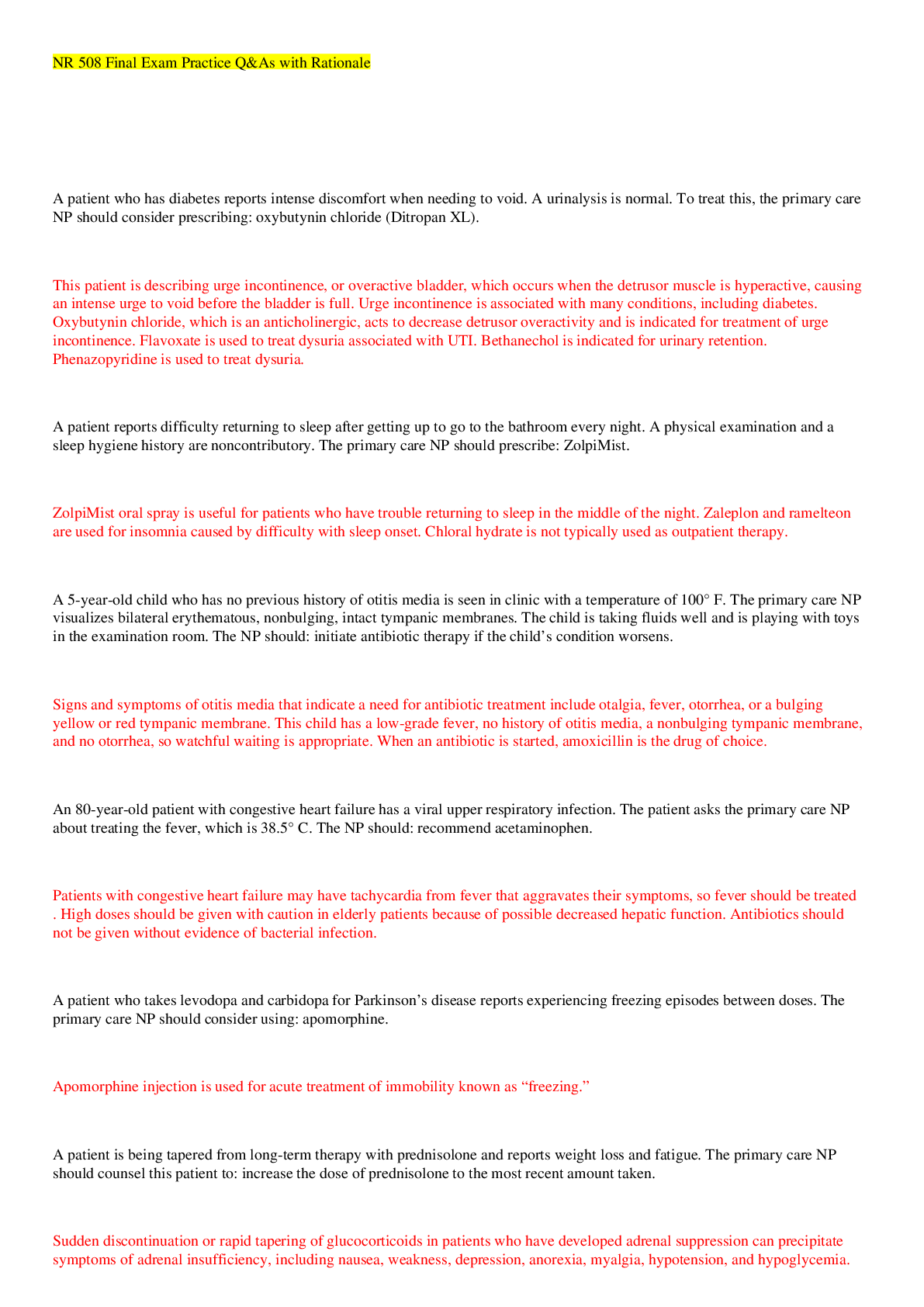
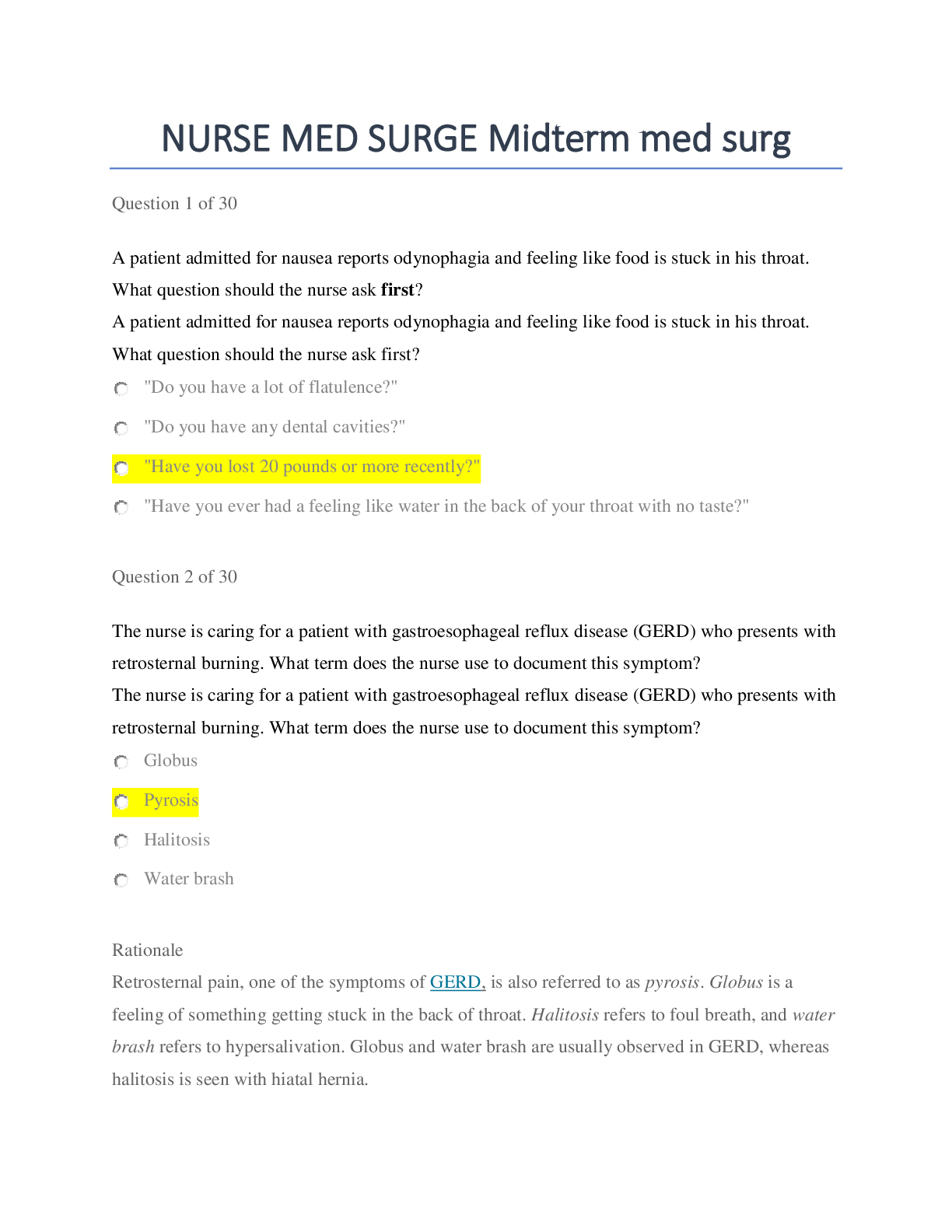
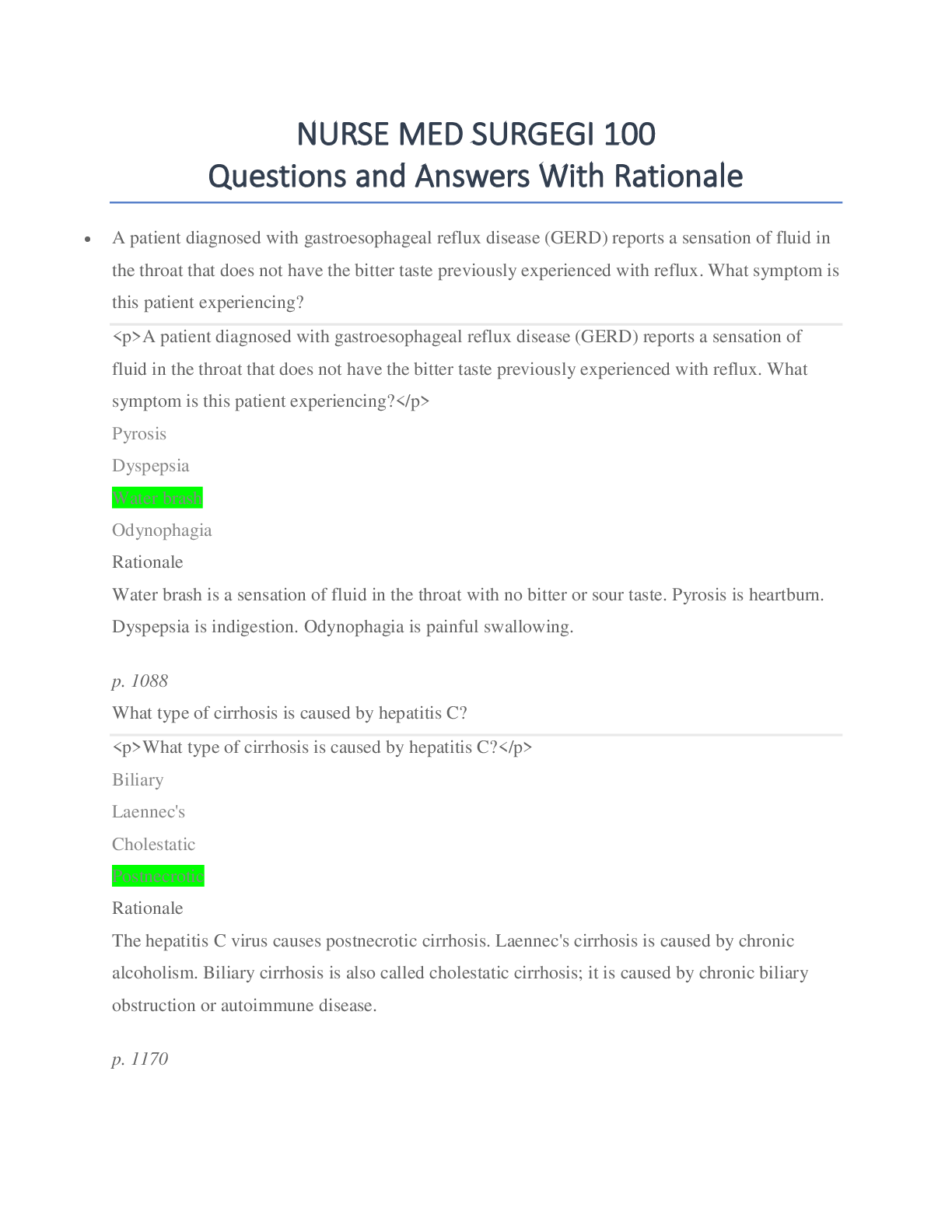
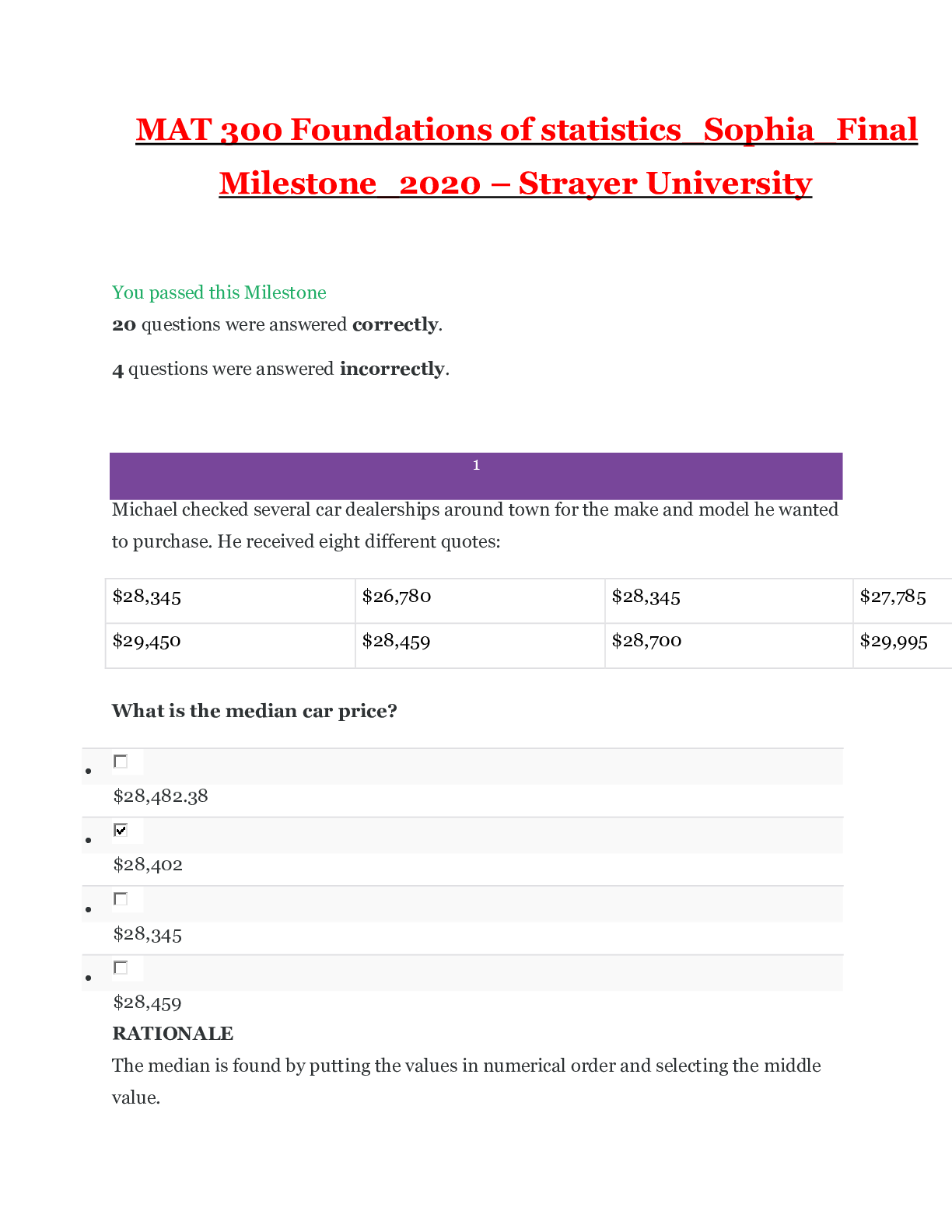
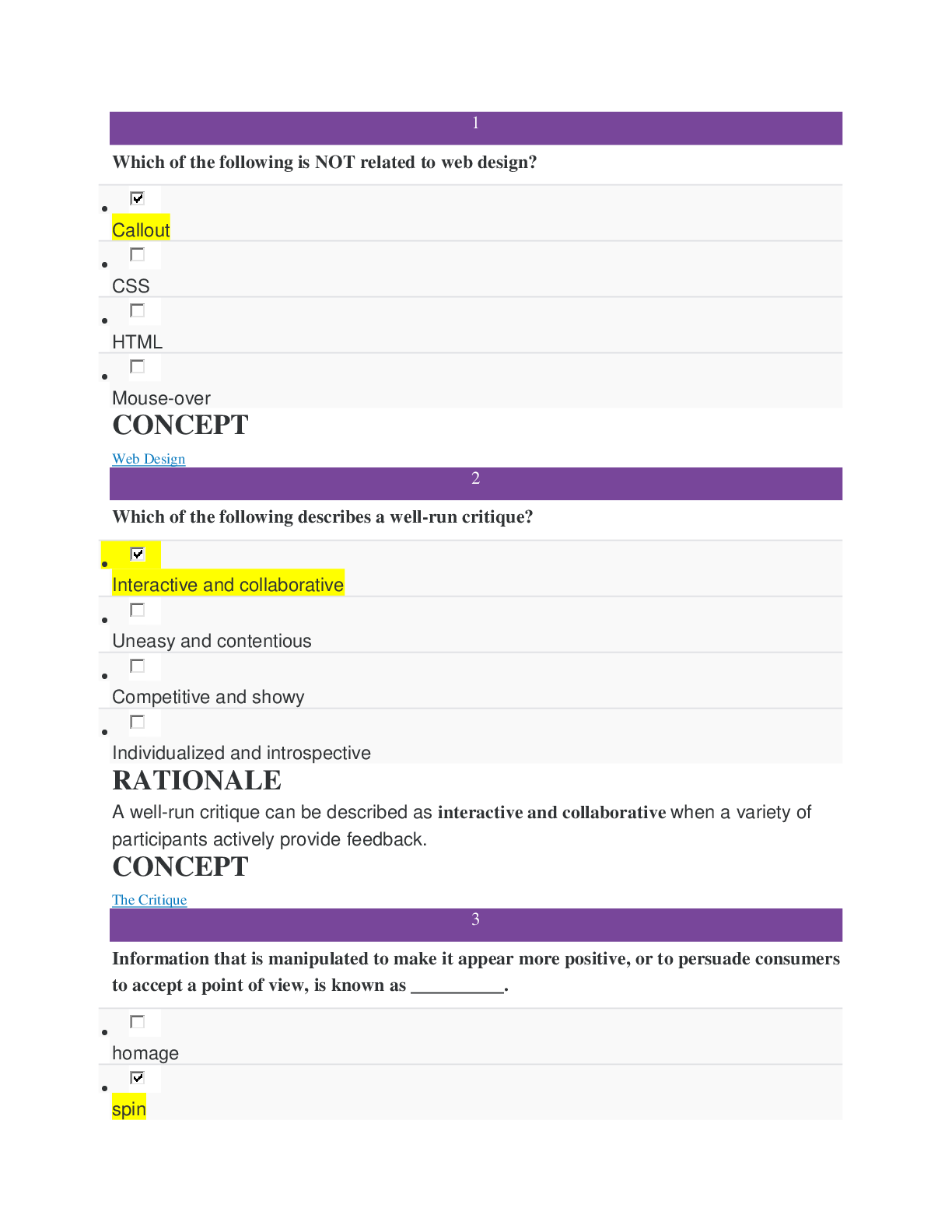
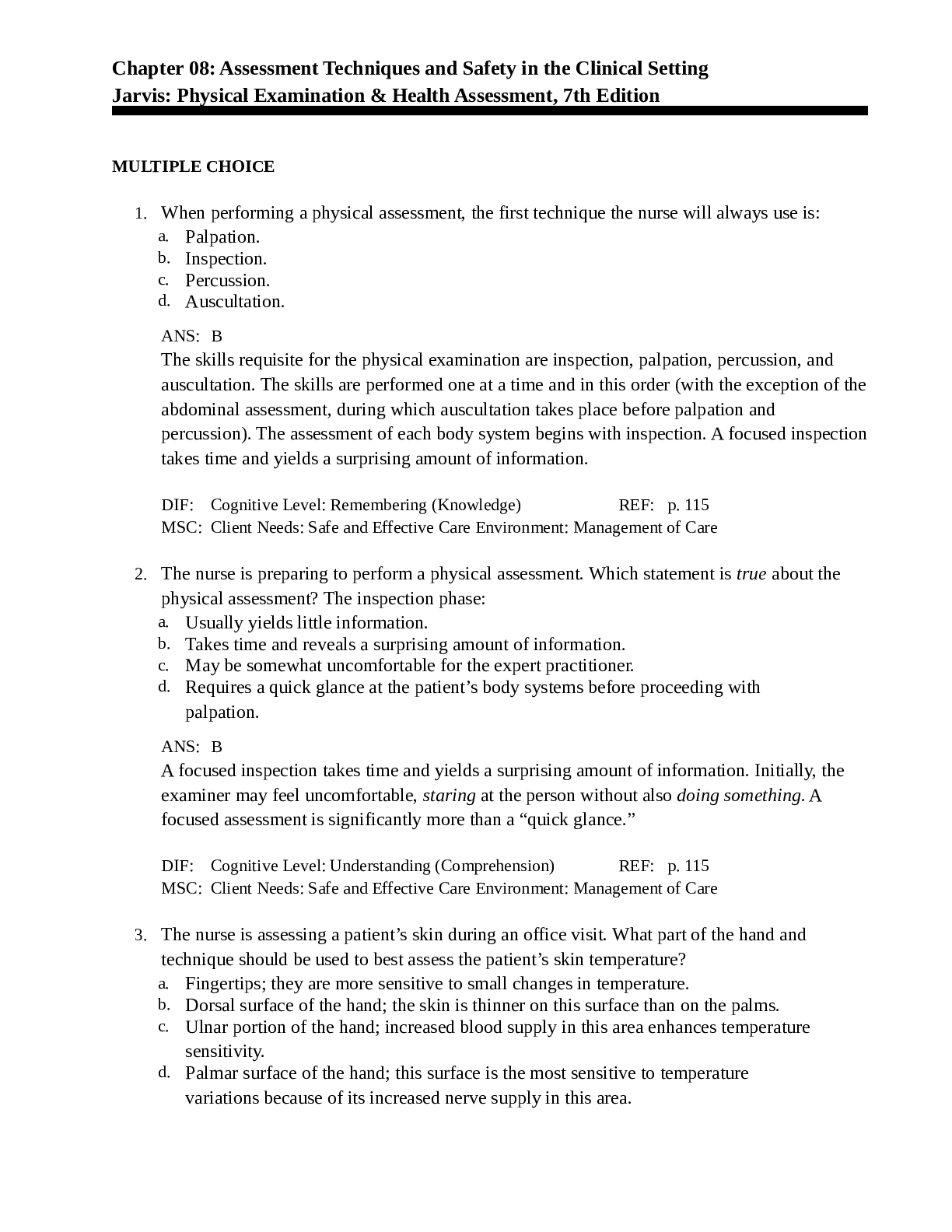
.png)
